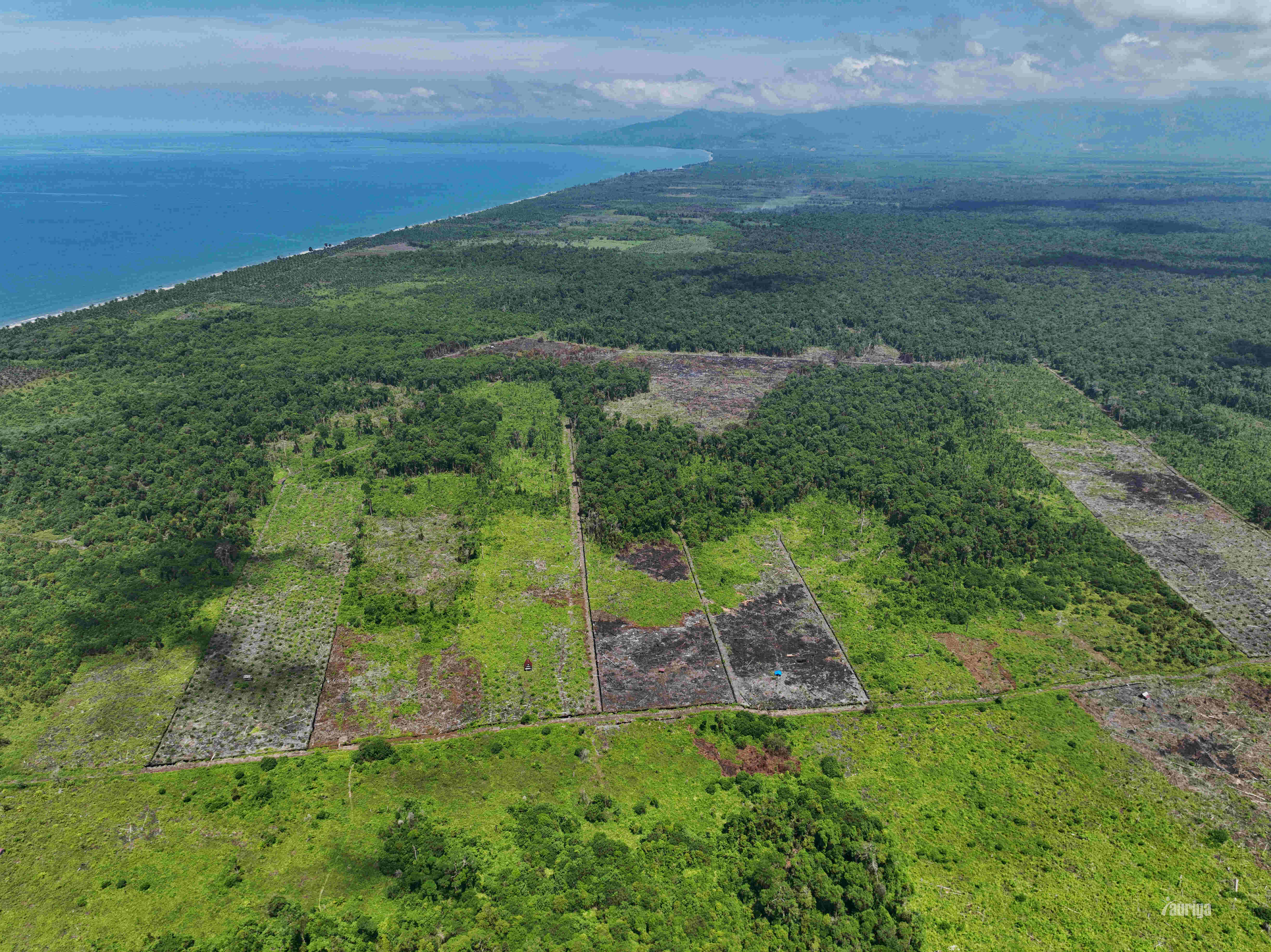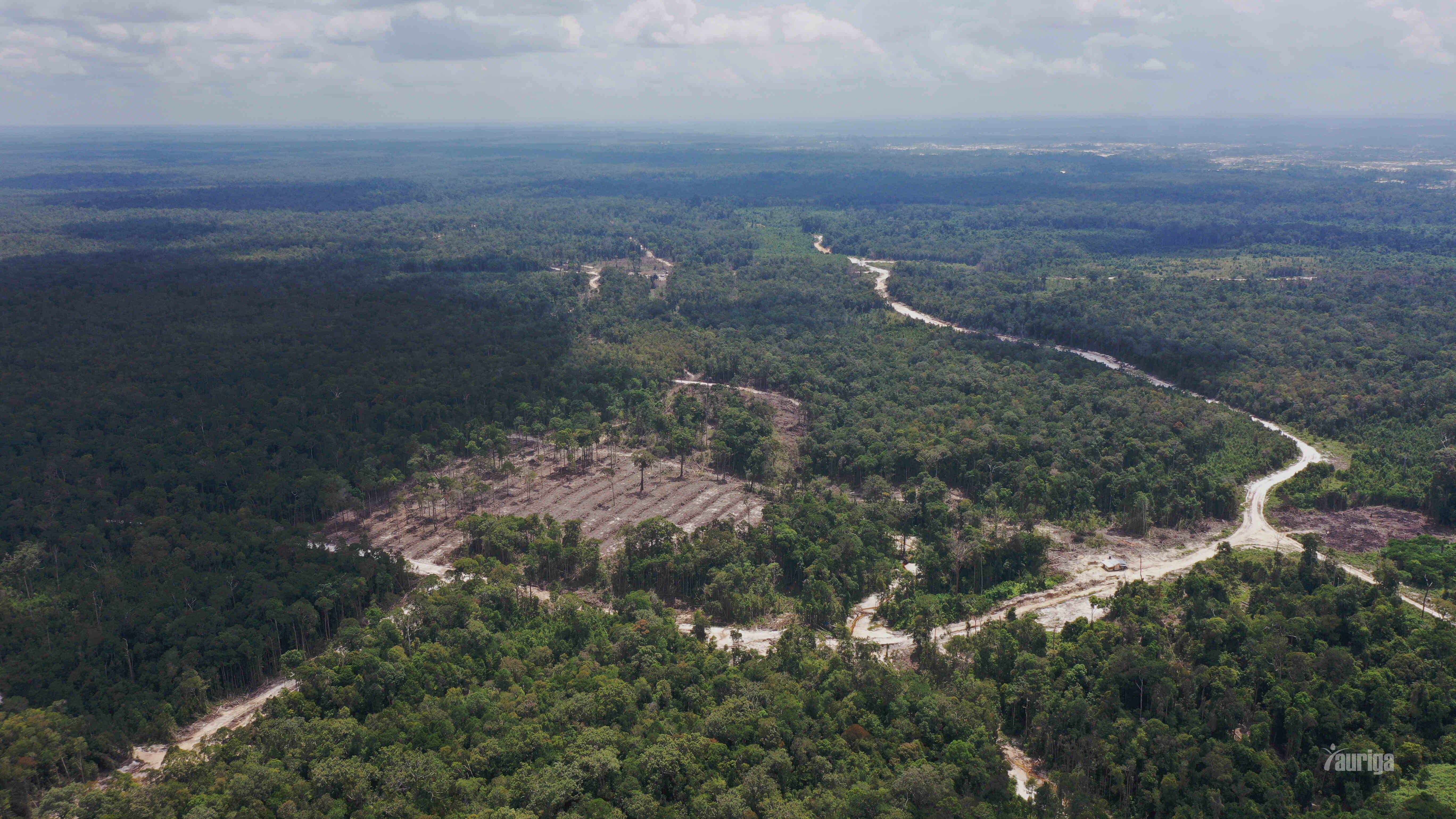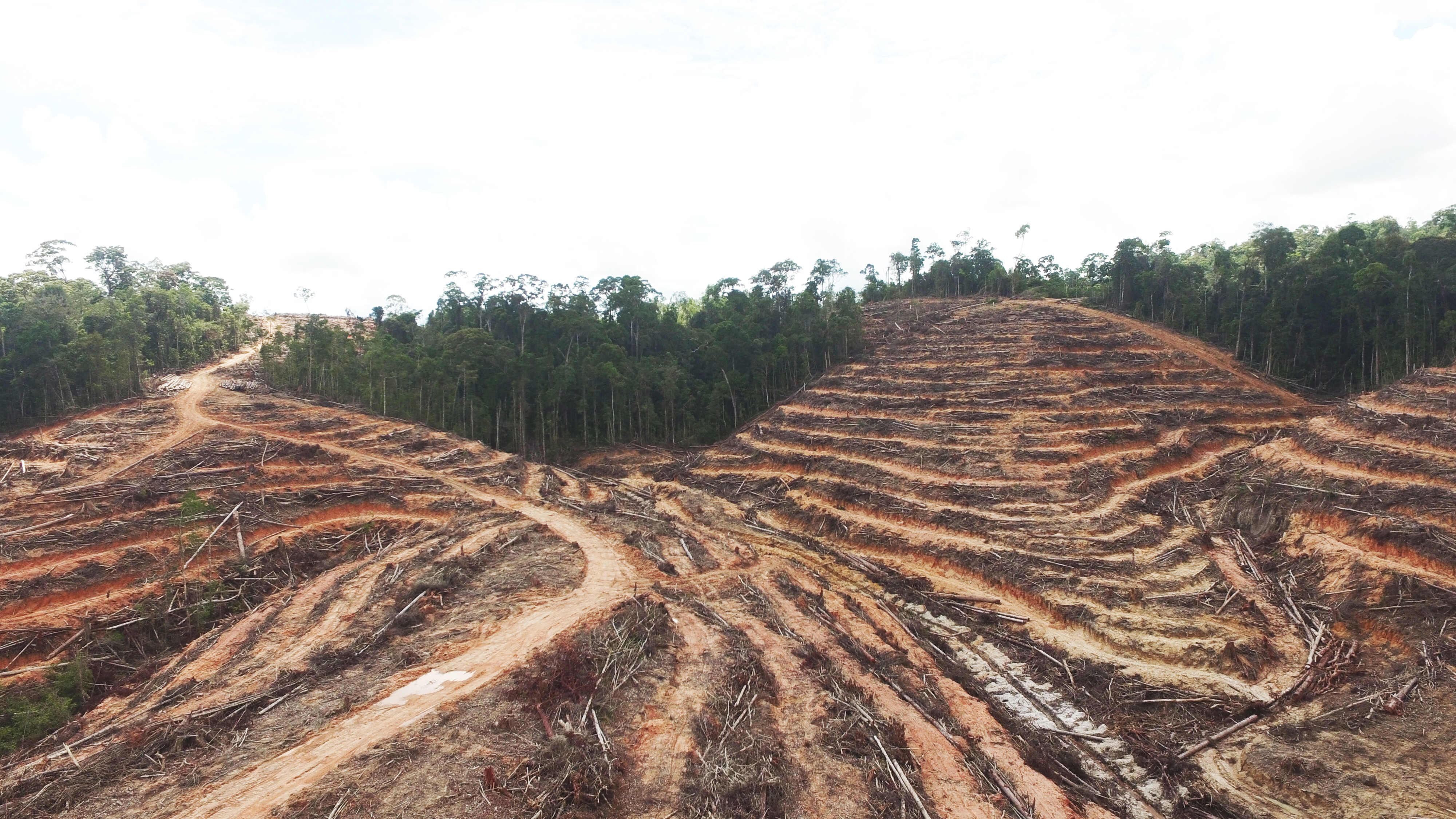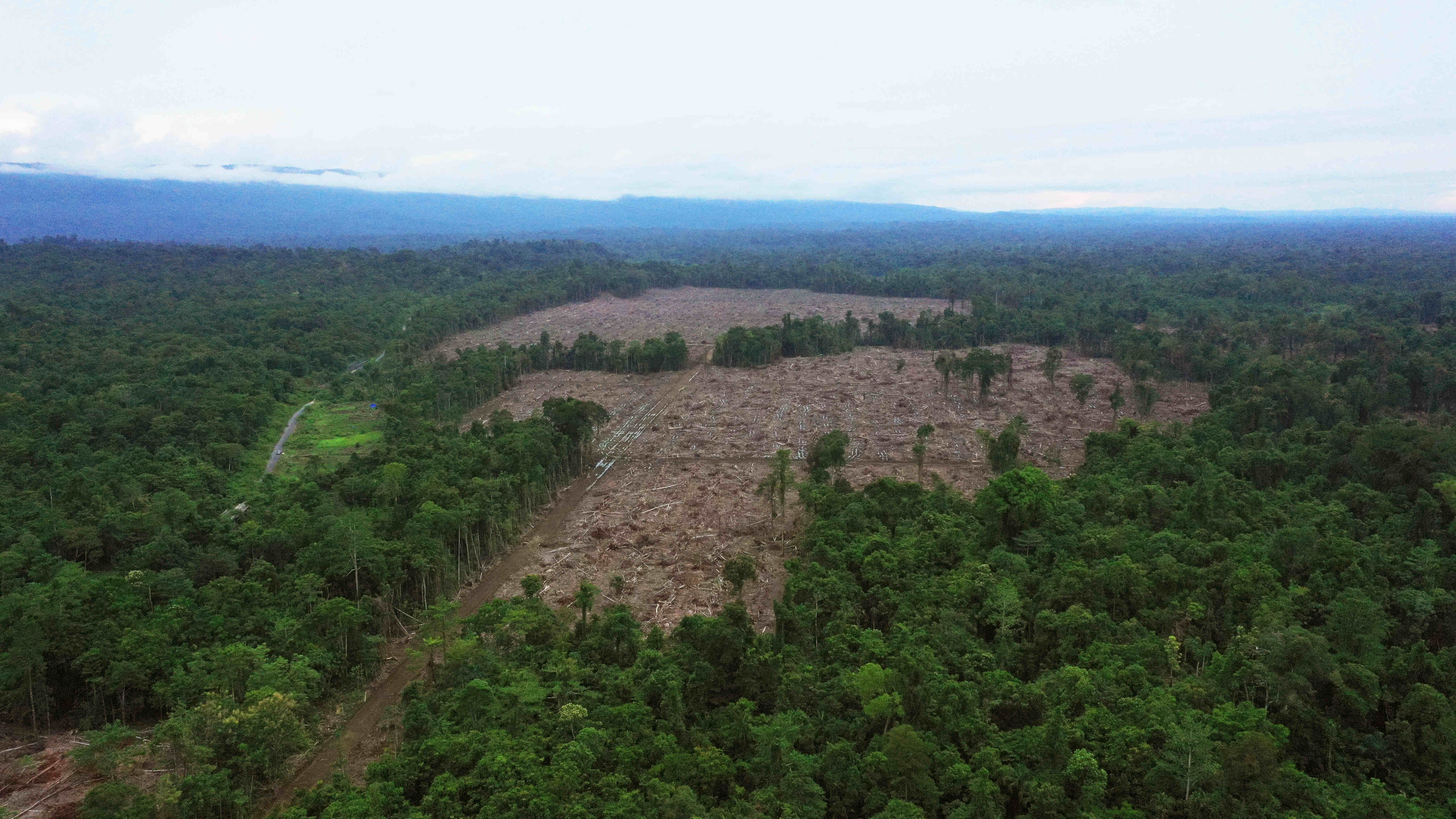
Deadline for submission: Sept 27, 2024
Jambi, Central Kalimantan, Central Sulawesi, Southeast Sulawesi.

Deforestation and marine biodiversity damage due to nickel mining in North Morowali District of Central Sulawesi Province. Photo: 2023 by Auriga Nusantara/Yudi Nofiandi
Exploitation of natural resources is often narrated as an activity that can boost the economy. On the other hand, many have proven that natural resource exploitation also creates structural injustices that occur continuously against local communities. Whether referred to as the resource curse, resource dependency, or the life cycle of resource communities, the impacts show that patterns of injustice exist in the areas where extraction takes place. Persistent poverty and even spatial isolation remain significant sources of structural injustice.
Much of this structural injustice is the result of land use change that occurs as a result of natural resource exploitation, not limited to extractive industries but including the expansion of oil palm plantations and the development of forest estates (timber plantations). Not only does land use change take land away from indigenous peoples and local communities, who often depend on the land for their survival, at some point, land use change also causes damage to natural ecosystems.
Recognition of indigenous peoples' rights has been articulated in many forms of international law. Indigenous peoples' rights to land and natural resources include the right to own, use, develop and control their traditional lands and natural resources. Indigenous peoples' land rights comprise both individual and collective rights, and States are obliged to ensure the effective recognition and protection of indigenous peoples' land and natural resource rights.
Indigenous peoples should not be displaced from their lands or territories. If relocation is necessary, affected indigenous peoples must give their free, prior and informed consent (FPIC) and be adequately compensated. Despite existing recognition and protection at the international and regional levels, indigenous peoples' rights to lands and natural resources are very often violated and not respected at the national level, both by States and the private sector.
While this phenomenon is not new, as indigenous peoples' rights have historically not been respected, there appears to be an increase in forced displacement suffered by indigenous peoples around the world including Indonesia. In what is referred to as a 'land grab', there has been a sharp acceleration in land acquisitions around the world, especially by foreign investors in search of fertile land and natural resources. Land grabbing and external pressures on indigenous peoples' lands have become a widespread reality in Indonesia.

Deforestation due to oil palm development in Rawa Singkil Wildlife Reserve, Aceh. Photo: 2024 by Auriga Nusantara/Fajar Simanjuntak
Therefore, through "Enabling Civil Society's contribution to Prosperous, Fair and Sustainable Development in Energy Transition and Sustainable Land Use" Project Auriga together with WWF with the support from the European Union seeks to open space to support civil society organizations to play a significant role in the process of formulating energy transition and sustainable land use policies and their implementation on the ground. More specifically, this opportunity will provide support in conducting a series of participatory field investigations (encouraging IPLC engagement) on equitable land use and energy transition to develop evidence-based monitoring. The focus will be not only on industrial expansion, but also on the impacts of land use change, particularly related to coal and nickel mining, oil palm plantation expansion and timber plantations. It is important to understand how these changes affect the environment and social lives of indigenous peoples and local communities. Mapping the territories of indigenous peoples and local communities also needs to be done as a push for the recognition of customary territories.
Through this approach, effective and inclusive mitigation strategies are expected to be developed. This will not only help in reducing environmental destruction and social conflict but will also support the economic and social sustainability of local communities. Thus, research and monitoring that focuses on land use change due to the expansion of the nickel and coal industries, oil palm plantations and timber plantations is an important step in maintaining a balance between economic development and environmental conservation and social justice.
The purpose of the Financial Support on Third Party (FTSP) on this opportunity is multifaceted, not only aiming to provide financial support, but also strengthening the role of civil society and local communities through evidence-based monitoring of land use change and energy transition. This opportunity is also to support civil society organizations in several important areas such as:

Road network construction in the PT Babugus Wahana Lestari timber plantation concession, which will be opening the door for further massive deforestation. Photo: 2024 by Auriga Nusantara/Fajar Simanjuntak
This FSTP program has a dedicated focus on local areas with a high threat of land use change due to the expansion of nickel and coal mining, oil palm plantations and timber plantations. CSO applicants must be based in four provinces prioritized by Auriga Nusantara and WWF-Indonesia: Jambi, Central Kalimantan, Southeast Sulawesi, and/or Central Sulawesi. In addition, other conditions that must be complied with include the following:

Oil palm expansion causing deforestation in Central Kalimantan. Photo: 2018 by Auriga Nusantara
Apart from the requirements above, WWF-Indonesia & Auriga will also carry out an assessment based on:
WWF-Indonesia & Auriga will announce the recipients of the grant funds to be funded for 6 months with the maximum amount IDR 250.000.000. It is estimated that the grant will start around late September or early October 2024.
The Call for Proposal process will go through the following steps:

Deforestation inside the PT Permata Nusa Mandiri concession in Jayapura District of Papua Province. Photo: 2022 by Auriga Nusantara/Yudi Nofiandi
Proposal templates are here: narrative and budget .
Full Proposal can be sent to email address: hilman@auriga.or.id with and copy/cc to: info@auriga.or.id and Riski Muda Farsyah (rmfarsyah@wwf.id)